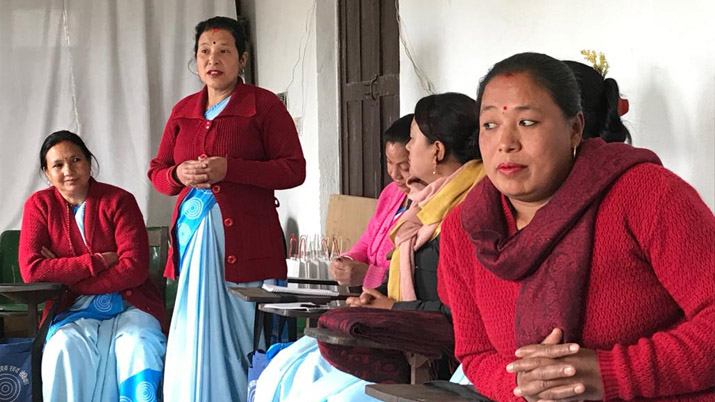For the right to paid employment in Nepal


(Source JHL) - the original article in Finnish can be found here
Nepalese volunteers in primary health care have begun to demand recognition of their status. With the support of the trade unions that they have set up, they are demanding an adequate salary as well as the status of officials.
JHL, Tehy, SASK, the Finnish Trade Union Solidarity Centre and Public Service International (PSI) have launched a three-year development cooperation project to support Nepalese people's access to remunerated health care workers.
Around 52,000 volunteers are currently employed in primary health care in Nepal.
"These volunteers are not remunerated and do not have social security coverage, for example in case of accidents at work. Nevertheless, they are ready to work around the clock if the situation so requires", says Eveliina Petälä, JHL's Specialist.
In 1988, the Ministry of Social Affairs and Health of Nepal launched a health care programme, which recruited female health care volunteers to address the primary health care shortage due to public sector budget cuts. The programme has been running for 30 years now. The volunteers receive only nominal compensation for their work.
"The annual remuneration is €55 on average. In the communities with the best circumstances, women can receive a monthly allowance of up to €7. Everyone gets a blue and white saree, which is a sign that they are recognised in the communities. They can retire at the age of 60, at which time they receive a lump sum of around €150", says Petälä.
According to Petälä, the tasks performed by volunteers include health and nutrition counselling, especially for pregnant women, mothers, the elderly and children. They also distribute medicines, condoms, vitamins, and in some communities they additionally administer vaccinations.
"The volunteers act as the link between households and the local health clinic. They do the rounds by going door-to-door, gathering health information about families (vaccinations, illnesses, pregnancies, etc.) and reporting back to the health clinic every month", explains Petälä.
Ten years ago, the World Health Organization (WHO) rewarded Nepal for its voluntary health programme, which has produced excellent results. The maternal and under-5 mortality rates have fallen considerably. Maternal mortality, for example, has declined by 80% over the past 20 years.
Now that women are increasingly engaged in defending their rights, JHL wants to be involved in supporting their efforts.
"Trade union development cooperation defends the rights of workers in developing countries by organising and negotiating collective agreements, thus improving their working and living conditions. There must be adequate remuneration for work. Hopefully this will also happen one day for the health care community in Nepal", Petälä emphasises.

